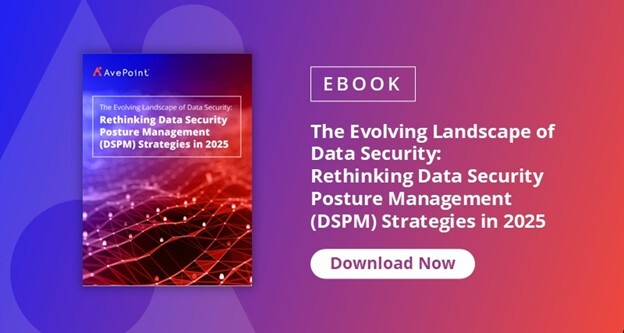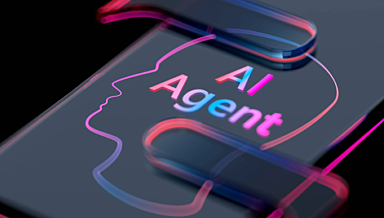The enterprise AI shift is no longer speculative; it’s operational. AI is now driving real productivity gains, from marketing and customer service to compliance and project delivery. According to McKinsey’s The State of AI: Global survey, 71% of the respondents mentioned that their organizations regularly use generative AI (GenAI) in at least one business function — a 9.2% increase from just a year ago. And this momentum isn’t slowing. Gartner anticipates that by 2029, agentic AI will handle 80% of routine customer service tasks without human intervention.
One standout announcement during the Google Cloud Next 2025 captured what’s coming: Google Agentspace. Designed to accelerate outcomes, Agentspace orchestrates autonomous agents that can access, interpret, and act on data across systems. This marks a shift from AI as an assistant to AI as a collaborator capable of executing strategic, cross-functional tasks.
If you’re testing Google Agentspace in a multi-cloud environment, security and compliance need to come first. That starts with understanding how agentic AI works to accelerate value without exposing your data to more risk.
What Is Google Agentspace?
AI agents are transformative productivity enhancers. Unlike traditional automation, they understand context, make decisions, and act across systems, guided by natural language while improving over time.
Google Agentspace takes this further, scaling agentic AI across the enterprise with Gemini-powered intelligence and secure-by-design infrastructure.
Agentspace deploys and orchestrates fleets of agents that connect across tools like Google Workspace, BigQuery, and customer relationship management (CRM) and SaaS platforms, with no custom integration required. Role-based access controls (RBAC) and encryption keep access tight, while semantic search and knowledge graphs reveal hidden insights from structured and unstructured sources.
This democratized, user-first approach is what makes Agentspace stand out. It’s not just designed for AI labs or dev teams; it’s also built for business.
At its core, Agentspace reflects a shift in how we work with AI — think less chatbot, more autonomous teammate. It’s Google’s answer to what agentic transformation should look like: secure, scalable, and in service of outcomes.
How Agentspace Will Work in Practice
Google Agentspace fuses multimodal enterprise search, semi-no-code agent creation, and live observability into a single pane. This process enables AI agents to move from proof-of-concept to production fast.
What does this look like in a real-world application?
- Marketing automation. An agent can launch a campaign and monitor engagement. It can also adjust messaging based on user behavior and allocate budget to the top-performing channels without human intervention.
- Customer support. Instead of bouncing between CRMs and helpdesk tools, an AI agent can pull data from all relevant sources. This allows it to resolve tickets and escalate edge cases in real time.
- Project management. Agents can summarize updates. They can also flag risks based on status reports and reassign tasks based on team capacity.
This level of support in Agentspace goes beyond Robotic Process Automation (RPA) 2.0’s capabilities. While RPA 2.0 can handle slightly more complex repeatable, rules-based tasks, Agentspace delivers context-aware, autonomous decision-making. Agents can adapt as inputs change, making them more akin to digital colleagues than simple scripts.
Why Agentspace Matters for Business Leaders
Tomorrow’s market leaders won’t just use AI — they’ll also fully embrace autonomous agents that make decisions and act in real-time. To thrive, businesses must empower AI to make decisions and act at scale, reducing lag between insight and execution.
These next steps are essential actions businesses must take to stay competitive and drive impact with AI agents.
Drives Efficiency and Focuses on What Truly Matters
One of the biggest challenges in any organization is getting the right people to focus on the right tasks. With AI agents doing the routine and repetitive work, your employees can concentrate on higher-value, more strategic endeavors.
Adopting AI agents isn’t about replacing humans; it’s about removing the friction that prevents them from doing their best work.
Advances AI Use from Adoption to Maturity
Having AI is no longer enough. The differentiator is how AI is used. Organizations that rely solely on embedded tools like Gemini or Copilot will struggle to keep up with those who customize agents to align with their specific operational needs and data ecosystems.
Accelerates ROI with Targeted Use Cases
Agentspace enables outcome-driven automation, where success is measured in resolved tickets, closed deals, and completed projects, and not just “time saved.” For executives tasked with proving AI’s business value, agents offer clear, auditable ROI faster than general-purpose models.
The Risk Landscape: Why Governance Can’t Be an Afterthought
Agentic AI accelerates execution, but that speed comes with risk. Without strong governance, agents can expose sensitive data, misapply permissions, or violate compliance policies — and small gaps in oversight scale fast.
Agentspace’s power depends on responsible deployment. Governance is the key to keeping agentic systems secure, compliant, and aligned with business goals. Here’s how:
Strengthen Oversight Before Agents Reveal the Gaps
Agentic systems demand strong oversight. Agentspace follows existing permissions, but most enterprises still struggle with permission sprawl and inconsistent governance. If your data access model is flawed, agents will expose those cracks fast.
Treat Every Agent as a Security Endpoint
Each agent represents a new endpoint with potential access to sensitive systems and data. According to Gartner, AI agents could reduce the time it takes to exploit account exposures by 50% by 2027. If you’re not sure your workspace permissions are correct, Agentspace will push that uncertainty into overdrive.
Tighten Controls to Stay Ahead of Privacy Risk
With agents traversing systems and datasets, regulatory frameworks like GDPR and the California Consumer Privacy Act (CCPA) become harder to manage. What data are agents touching? Who can audit it? Without answers, organizations risk not just fines but lasting reputational damage.
How a Strong Multi-Cloud Data Foundation Enables Safe Exploration
Before diving into Agentspace, a solid data foundation is key to unlocking its potential while safeguarding your enterprise. That means well-defined data classification, access controls, and usage rules across all data sources Agentspace is pulling from. Without them, agents risk surfacing sensitive or irrelevant content. Clean, labeled, and context-rich data also minimizes the chances of errors or hallucinations, ensuring AI decisions are grounded in real business needs.
Equally important is observability. Every agent action should be traceable and auditable, enabling safe testing and continuous refinement. When governance spans systems – email, CRMs, cloud storage – agents can move freely across workflows without compromising compliance. That’s what turns experimentation into scalable, secure transformation.

How to Responsibly Explore Google Agentspace
Agentspace unlocks powerful new capabilities, but with autonomy comes responsibility. Below are the focus areas and guide questions to help you explore Agentspace responsibly.
- Pinpoint high-impact automation areas. Are there inefficiencies that AI agents could realistically solve?
- Assess your data environment. Is our data secure, well-governed, and ready for autonomous AI access?
- Set clear governance boundaries. Do we have clear policies and controls to manage agent access and keep humans involved in critical decisions?
- Pilot in low-risk environments. Can we safely pilot Agentspace in low-risk areas to test controls and measure value before scaling?
- Establish robust monitoring and auditing protocols. Can we trace, explain, and control what AI agents are doing at any time?
- Align with compliance and regulatory trends. Are we ensuring our Agentspace testing environments with the latest AI governance requirements and building processes to adapt as regulations evolve?
- Build AI literacy across teams. Is our workforce prepared to collaborate effectively and safely with AI agents?
Agentic AI will redefine how business gets done, but only if adopted thoughtfully. This next era of automation doesn’t reward those who move fast. It rewards those who move strategically, prepare their data, empower their people, and put AI to work where it actually moves the needle. With that groundwork in place, you’re not just exploring Agentspace — you’re activating a competitive edge.
Learn how to secure your Google Workspace data as you adopt agentic AI.





